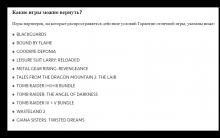On the territory of Russia, in the MTS network, communication services are provided to subscribers in full, if the account has a positive balance. Accordingly, when going on a trip to another region of our country, you do not need to activate roaming. However, in order to significantly reduce communication costs while traveling in Russia, you can connect some services. This will allow you to communicate with friends and family and go online without restrictions throughout Russia.
Recently it became known that MTS canceled roaming in Russia. Now subscribers will be able to receive incoming calls from any region of Russia for free, and pay for outgoing calls at the price of their home region. These changes have so far affected all tariffs.
What's free when traveling in Russia?
The MTS company cares about the comfort of its clients while traveling and helps to make the trip more relaxed, thanks to useful services. On the trip, you can free of charge:
- Incoming calls are free throughout Russia (if you are in the MTS network);
- Mobile Internet - all over Russia at home;
- Outgoing calls in the region of residence - regardless of the region where you are located, you are at home throughout Russia;
outgoing long distance calls - all over Russia cost the same - 5.5 rubles / min. - Make a call to the MTS Contact Center. If the subscriber needs to contact the operator, he can do this at any time. Just dial 0890.
- Find out how to save money. By dialing the command * 111 * 33 # on your phone, you can go to the roaming portal and find out about great deals.
- Activate the "Help out" service. To call and send messages to MTS subscribers at their expense, you need to dial * 880 #.
Favorable options for calls while traveling in Russia
Many subscribers are interested in what to connect to MTS in roaming so that they can stay in touch with loved ones. To make calls without additional costs, the company offers to connect one of the roaming options.
Option for roaming Home package Russia MTS (daily payment)
Smart subscribers who have activated this option spend their package of minutes and SMS to the numbers of other operators in their home region. This means that if you come from Moscow to Tver, then calls from Tver to Moscow (home) will now be long-distance, and minutes will be spent from your package. And if you do not connect the service, then the cost of an intercity minute for operators other than MTS is 14 rubles / min.
The fee of 10 rubles is debited once a day, provided that the client sends messages or calls.
The connection and disconnection of the service is made through the command * 111 * 743 #.
Option Home package Russia plus MTS (payment per month)
If the subscriber wants to save money and receive a package of calls and SMS to the numbers of all Russian operators, which can be used when traveling across Russia, then it is better to connect the "Home package Russia" + MTS. The service costs 100 rubles per month, the fee is debited at the time of activation. This means that if you come to Tver from Moscow, then calls from Tver to any other city will now be intercity calls, and minutes will be spent from your package. And if you do not connect the service, then the cost of an intercity minute for operators other than MTS is 14 rubles / min.
The service can only be activated on the tariffs "My Unlimited", "Tariff", "X", "Smart Unlimited", "Smart", "Smart nonstop", "Smart mini", "Smart light"
Connect the service
The service can be added and removed by dialing the combination * 111 * 128 #.
Service Everywhere at home Russia MTS
To make calls while traveling in Russia at a favorable cost - 3 rubles per minute to any numbers in your home region - you can activate the option "Russia is at home everywhere". The cost of the service is 5 rubles per day.
The service cannot be activated on tariffs: “My Unlimited”, “Tariff”, “X”, “Smart Unlimited”, “Smart”, “Smart nonstop”, “Smart mini”, “Smart light”, “Smart Top”, “Ultra "," Smart + "
You can add an option to your tariff and “cancel” roaming in Russia MTS 2018 through sending an SMS with the digits 528 to 111 or dialing the combination * 111 * 528 #.
Options for "profitable" Internet when traveling in Russia
Various options will also help you optimize your data roaming costs. By connecting one of them, an MTS subscriber will be able to access the Internet even outside the home region, and at the same time not spend a lot of money.
Super Bit
| 3 GB of Internet traffic in Russia | 350 rub / month |
Many MTS clients have heard about this option and prefer to enable it in roaming. According to the terms, the subscriber is provided with 3 GB of Internet traffic free of charge per month. After they have been exhausted, additional 500 MB packages are "included". The cost of one package is 75 rubles. If necessary, you can refuse additional MB and use the "Turbo - buttons".
Option cost - 350 rubles / month. * 111 * 628 # is a command to activate the service on your number.
MTS mini

| 7 GB of Internet traffic in Russia | RUB 500 / month |
Subscribers of all tariff plans have access to the "Internet-Mini" option, which operates on the territory of Russia. It allows you to go online even outside your home region. An MTS client receives 7 GB of Internet traffic per month for 500 rubles.
To activate the service, you need to enter the command * 111 * 160 #.
MTS maxi

| 15 GB of Internet traffic in Russia | 800 rubles / month |
"Internet-Maxi" is an option for those who like to spend time on the Internet, but at the same time want to save money. As part of the service, a subscriber for a monthly fee of 800 rubles. provided 15 GB during the day and unlimited at night. You can activate the option by dialing the command * 111 * 161 #
MTS VIP

| 30 GB of Internet traffic in Russia | 1200 rubles / month |
MTS customers who are not used to limiting their time on the Internet will like the “Internet-VIP” option, which offers 30 GB of traffic during the day and unlimited at night. The monthly service fee of 1200 rubles is debited at the time of activation. You can add an option to your number by dialing the combination * 111 * 166 #.
The "Internet-Maxi" and "Internet-VIP" options also provide a discount on MTS TV. In the first case, clients receive a 30% discount, in the second - 50%.
Reducing your communication costs in roaming MTS in Russia is possible thanks to the options offered by the mobile operator to its customers. Taking into account your needs, you can connect services that will help you make calls or access the Internet at a bargain price. The main thing is to take care of connecting the appropriate option in advance.
Mobile operators of the "Big Three" announced the abolition of fees for incoming calls in roaming in Russia. These events are carried out in the framework of last year's order of the Federal Antimonopoly Service () of Russia, which demanded from operators to reduce and equalize tariffs for communication while traveling around the country.
The first to announce the cancellation of payments for incoming calls from other regions was (Beeline brand). This information was confirmed to Gazeta.Ru by the press secretary of the company.
Earlier, Beeline subscribers on “lower” tariffs paid for a long-distance incoming call at 5 rubles per minute. Starting from August 20, all incoming calls for all subscribers will be free, regardless of the tariff plan and payment system.
“Since April, all our subscribers, traveling outside their region in Russia, call, send SMS and use the mobile Internet like at home. This allowed many clients to reduce their communication costs several times. The next important step: we will cancel the fee for any incoming calls while traveling within Russia in the Beeline network. Thus, taking into account the wishes of our subscribers and listening to the opinion of the Federal Antimonopoly Service, we have finally formed simple and understandable tariffication conditions "like at home" for any services throughout Russia in the Beeline network, - the Executive Vice President for Marketing and Brand commented on the innovation PJSC VimpelCom.
The cancellation of incoming fees was announced by and.
“MTS has carried out all the necessary preparatory work and in the near future incoming calls while traveling around the country will be free for our subscribers. When moving around Russia, MTS subscribers will be able to use tariffs as in the home region, ”the press service of MTS said. A spokesman for the press service did not specify when exactly the changes will take effect.
“The cost of incoming calls from all regions when traveling across Russia is zeroing for most subscribers until the end of August, for the rest - in the first half of September,” the press service told Gazeta.Ru.
The press secretary explained to the Gazeta.Ru correspondent that the company's clients “have been using communication on trains across Russia for a long time, as in their home region,” and on most Tele2 tariffs roaming has already been canceled. She added that the deadline for canceling intranet roaming was extended by the FAS until August 31.
“Before that time, we will complete all measures to cancel intranet roaming,” concluded Galushina.
Not canceled yet
In June 2017, the head of the FAS for the first time announced the preparation of documents for the removal of the concept of roaming within the country from the legislation.
Mobile operators received the first warning from the Federal Antimonopoly Service in July 2017. Then the FAS, in the course of its investigation, discovered unfairly high prices for communication in roaming and demanded that the difference in tariffs be eliminated within two weeks.
The Antimonopoly Service decided that mobile operators' pricing proposals and terms of service were “neither economically nor technologically justified,” and issued a directive to equalize tariffs in the home region and other regions of the country.
At the end of 2017, the ex-Minister of Communications and Mass Media expressed confidence that intranet roaming would be completely canceled in 2018, noting that mobile operators were already taking the necessary measures.
On July 10, 2018, in the first reading, it adopted a bill to abolish national and intranet roaming in the country. As one of the authors of the document noted, the difference in tariffs, which vary from region to region, is archaism. In addition, the presence of roaming makes communication less accessible for citizens, and the only ones who benefit from it are the mobile operators themselves.
The parliamentarians said that the abolition of intranet roaming will contribute to the development of the communications market.
The four largest operators in Russia and the Federal Antimonopoly Service came to a common compromise on whether or not to cancel roaming in 2018. Soon, Russian subscribers will no longer pay for this service. The basis for this decision was the decree signed by the president and the national plan No. 618 of 12/21/17 approved in accordance with it, aimed at eliminating the unreasoned difference in tariffs for mobile services when subscribers leave the home network.
On December 19, 2018, the State Duma adopted in the final 3rd reading the law on roaming developed by Fair Russia, which established uniform conditions for subscribers of cellular networks of the Russian Federation, regardless of the region.
Back in 2018, the Federal Antimonopoly Service gave the Big Four operators a directive to prepare for the abolition of roaming in Russia. Deadlines have been set for three service providers - VimpelCom, MegaFon, MTS and Tele2 - to carry out the necessary technical work.
According to the signed document, the new rules should come into force on 01.06.19.
The goal of canceling roaming in Russia in order to reduce unreasonably high prices was set by the antimonopoly service last year. But due to the scale of the work, it did not work out by the end of December 2018. Most likely, it will be possible to solve the problem only by the middle of 2019. There are no grounds for charging additional payments for calls from one region to another when the subscriber leaves the home network. The coverage of the largest Russian operators covers almost the entire territory of the country (with the exception of Crimea). On the peninsula, communications are provided by their regional companies, whose activities are regulated by relevant agreements.
The FAS plans to constantly monitor the process of refusing to pay for services for subscribers that involve the use of resources from different networks. In case of failure to comply with the instructions, the organization has the right to initiate proceedings on violation of clause 6 of part 1 of article 10 of the law "On Protection of Competition" that came into force and initiate the withdrawal of income earned illegally.
In his speech, the head of the Ministry of Telecom and Mass Communications of the Russian Federation N. Nikiforov assumed that in the 2nd half of 2018 there would be no global issues regarding roaming in Russia. But, in practice, the process can drag on for at least another 6 months (until the beginning of summer 2019).
Actions of operators of the "big four"
According to experts, leading operators began to prepare for the possible cancellation of roaming in advance. Despite the requirements of the antimonopoly service for an even distribution of all surcharges for the service, they began to systematically increase tariffs. For comparison: prices for services increased by 1.5 times compared to 2016.
Regarding the fulfillment of the instructions for the cancellation of roaming in Russia in 2018, the actions of the Big Four can be observed already today:
- Beeline (VimpelCom) began the process of stabilizing tariffs in national roaming back in December 2017.
- Megafon plans to cancel intranet roaming in the coming weeks.
- MTS has officially announced a reduction in tariffs for subscribers while traveling across Russia, including during their stay in Crimea.
- At first, Tele2 took a wait-and-see attitude, but under the threat of punitive measures from the FAS proceeded to take active steps to abolish roaming.
So far, not all companies have fully complied with the directive on the cancellation of intranet roaming. No matter how the operators resist, by May 2019 they will have to finally revise their tariffs and regulate the billing system.
According to I. Artemiev, the head of the FAS RF, the department is actively investigating "who, why and how" and is ready to use its entire arsenal in the implementation of the national plan.

As for the territory of the Crimean peninsula, at the moment there is an intranet national roaming. At the same time, Russian telecom operators operate on the territory of the peninsula, but due to the fear of falling under international sanctions, subscriber services are provided without the participation of the "Big Four".
There is no need to fear that the rejection of roaming will provoke another wave of tariff increases in other sectors in 2018-2019. The balance of interests of subscribers and communication companies will be maintained due to additional traffic growth. According to I. Artemyev, this will be implemented by removing barriers for cellular companies and building a new model that provides for non-discriminatory access to residential buildings.
The new bill quite clearly defined the time frame for all operators in Russia. Sergey Mironov drew attention to the fact that for over a year the government had been expecting active actions from companies providing cellular services on the territory of the constituent entities of the Russian Federation. We suggest looking at the video, what promises he made not so long ago:
Now the law has been adopted and, whatever the opinion of the Big Four companies themselves, they will have to comply with it from June 1, 2019.
As you know, there is internal roaming in Russia. When traveling to a neighboring region, the subscriber has to pay for his calls at a more expensive rate. Is there a solution to this problem? Cancellation of roaming in Russia has long been discussed everywhere, but will it happen in the near future?
In the near future, Russians should expect a new mobile tariff, in which the cost of calls will drop to the level of home calls, regardless of the network coverage area. Under the new rules, no fees will be charged when receiving calls from other cities and regions. The tariff rules throughout the country will remain unchanged.
What are the experts reporting?
Finam Management, represented by analyst Maxim Klyagin, informs that the introduction of this innovation should take place in the near future, since the cancellation of national roaming in Russia is practically resolved and does not have any particular difficulties.

It is worth noting some points that will significantly slow down the project implementation process. The territory of the Russian Federation has a significant length and uneven geographic relief, and this greatly complicates the work of organizing the infrastructure, and also increases the cost of its maintenance. Of course, it is worth noting the difficulties of formalizing the initiative through legislative norms. The consumer will bear the bulk of the financial costs. According to experts, if the legislation is changed, it would be possible to significantly reduce the cost of tariffs for the population for paying for intranet roaming.
Previous attempts
In 2010, there was a parliamentary initiative to legally abolish national roaming. But, unfortunately, the State Duma considered it a premature abolition of the existing norms, arguing that operators incur additional costs when servicing calls at the interregional level. For this reason, the law on the abolition of roaming in Russia has not been issued.

What is roaming and its alternatives?
National roaming is the actual use of another mobile operator's network for the needs of the first. Due to the fact that its use is extremely unprofitable for consumers, mobile communications are being actively replaced by IP telephony services.
Intranet roaming - in which one operator distributes telephone services through its own network between different regions of the country.
Volp (voiceover IP) is an IP protocol technology for telephony and communications. The technology can be used for sound transmission, video download, sound files and notification programs. It can also be used when broadcasting live webinars, films, television programs. Since the cancellation of roaming in Russia has not yet been implemented, the use of these alternatives is becoming more and more popular every month.

How does this happen?
According to experts, the increased popularization of this topic indicates a direct aggravation of competition in the mobile communications market. First of all, VoIP technology will significantly reduce the cost of calls. Recently, all mobile operators have been reducing the cost of roaming calls by forming special tariff packages.
Payment for the tariff is charged per minute. If the connection is made up to three seconds inclusive, the payment will not be charged. When connecting subscribers from different regions, cellular operators use zonal and long-distance networks. In the situation that has developed at this stage, when the subscriber connects to national roaming, the system activates the "intranet roaming" service.

When a subscriber travels to another region, making intra-regional calls there, he will pay through his home network.
About national roaming
Since the operators' networks cannot physically cover the entire territory of the country, they have a need to conclude a roaming agreement with operators from other regions of Russia and use their coverage to make a connection. By definition, the guest network is the one in which the subscriber registers, in which he himself becomes a roamer.
If there is a cancellation of intranet roaming in Russia, this will inevitably lead to irreversible consequences in the form of loss of income of mobile operators, which will ultimately affect the end user, since they will cover a significant share of the loss of income. So say the interviewed analysts from RIA Novosti. Thus, a significant increase in the cost of calls will have to be expected.

Cancellation of roaming in Russia - a question soon?
The head of the Federal Antimonopoly Service (FAS) Igor Artemyev earlier said that it is necessary to abolish domestic roaming, especially in Crimea. The top of the department called on the Ministry of Telecom and Mass Communications to finish work in this direction as soon as possible.
However, the risk of tariff increases remains a serious problem. According to analysts, roaming accounts for 3-5% of revenues for mobile providers.
According to the head of the department of wireless technologies Vitaly Solonin, after the abolition of national roaming, with the existing regulation of long-distance traffic, the profitability of telecom operators will be about 3-5% of their individual income from mobile communications.
Is a serious increase in tariffs real?
According to him, if the reform of the legislation is not approved, there is a risk of an increase in tariffs for mobile communications. How should the cancellation of roaming be regulated in Russia? Given the growth of operators' incomes, it is wiser to first reorganize the sectoral legislation in the field of traffic transmission, and only after that cancel roaming within the country. Otherwise, it will affect tariffs for end users, which means that operators will have to compensate for their losses.
Konstantin Ankilov, a representative of TMT Consulting, also agreed with the position expressed above. According to him, roaming revenues are about 5% of the revenues of mobile operators. This is a very tangible part of it, especially for such widespread providers as MTS and MegaFon. Cancellation of roaming within Russia in such conditions, when the market hardly expands, will lead to a serious rise in the cost of communication. Operators will cover the lost revenues by increasing tariffs, reaching approximately the same level of profitability.

Ankilov also expressed his attitude towards roaming tariffs in Crimea in the media, noting the fact of an increase in inter-operator tariffs for some companies.
Opposite opinion
At the same time, Denis Kuskov, general director of an analytical information agency called TelecomDaily, believes that national roaming does not bring supernatural revenue, and its cancellation should not affect the growth of tariffs. According to him, operators have federal licenses and are obliged to provide the same work throughout the state. The Ministry of Telecom and Mass Communications takes the wrong position - not to pay attention to what is happening and agree with the actions of the operators. Considering that the EU was able to fully abolish roaming, this means that it is possible to do this in Russia, Kuskov believes.
Cancellation of roaming in Russia: MTS and other operators
Cellular operators report that they are now working to reduce roaming rates.
The head of the press service of the MegaFon provider, Yulia Dorokhina, recalled that at present, operators conduct traffic through long-distance communication networks, which affected the basic rates of domestic roaming. In the future, these costs will be reduced by introducing new technologies, as well as carrying traffic through a data transmission network (for example, VoLTE), but it is not possible to use them due to the lack of a legal basis.
She also explained that today Megafon subscribers who regularly travel around Russia have the opportunity to connect an option called “Be at home”, the price of which is 15 rubles per day. This makes it possible to communicate while traveling at the rates of the home region.
What news comes from MTS-Russia? Cancellation of roaming is planned for this operator as well. MTS canceled it in 2015 on tariffs of the Smart series: the subscriber, while traveling in another region, is served on the terms of the home tariff. This was officially announced by Dmitry Solodovnikov, the press secretary of MTS.
Beeline conducts a phased policy of reducing roaming rates for its customers. When using the package tariffs "EVERYTHING", subscribers have access to unlimited calls from the "Beeline" provider almost throughout Russia. In this case, the user receives a set of available minutes, SMS and mobile Internet at a cost commensurate with the prices of the home region. Moreover, when traveling across the territory of many regions of Russia, communication is provided at the same prices as at home. This was officially announced by the press secretary of the provider company Anna Aibasheva.
Thus, active measures are already being taken to abolish national roaming. Whether it will be beneficial and convenient for consumers - it will be possible to be convinced of this in the near future.
In December 2017, the “big four” mobile operators, yielding to the insistence of the FAS, promised to equalize the cost of calls in the home region and beyond. On January 31, 2018, the time allotted for VimpelCom (owner of the Beeline brand), Megafon and MTS to adjust their pricing policy expired, and in March the FAS initiated antitrust cases against them, accusing them of high roaming prices in Russia.
Have you canceled domestic roaming in 2018? What did the FAS struggle lead to, which cellular operators complied with the agency's requirements, and to which ones it still has claims?
Types of roaming in Russia
Roaming is a mode of using cellular communication outside the coverage area of your operator's network. When there are no towers of the serving company in the subscriber's territory, or the coverage of the partner company is wider, the capacities of another provider are used to provide mobile communication. In this case, the number is saved. This concept applies to international and national roaming.
In addition to national roaming, there are two other types of roaming in Russia:
- intranet - registration with your own operator outside the home region: the subscriber is charged an additional fee for expanding the network coverage;
- in Crimea - the existence of this type of roaming is due to geopolitical conditions: the Western sanctions introduced after the annexation of the peninsula to the Russian Federation in 2014 closed the Big Four (Beeline, Megafon, MTS and Tele2) direct access to the market. Companies provide services through intermediaries, which affects the final prices for consumers.

How did the Federal Antimonopoly Service achieve the abolition of roaming?
The Federal Antimonopoly Service announced its intention to achieve the elimination of roaming in the country, up to the exclusion of this concept from legislative acts, in November 2016, and in the summer of the following it applied coercive measures:
- July 14 issued warnings to the Big Four about the elimination of intranet roaming;
- On August 3, she initiated proceedings against each operator for high prices already in national roaming.
The FAS threatened to fine the violators - it is within the authority of the department to issue an order on the withdrawal of unreasonably received income in favor of the federal budget.
A weighty argument that the FAS has been presenting to operators since December 2017 is presidential decree No. 618 "On the main directions of state policy for the development of competition" dated December 21, 2017. The national plan for the development of competition in the Russian Federation until 2020, approved by him, provides for the elimination of the unreasonable difference in the cost of mobile communications during domestic travel of Russians.
The timing
When all federal operators cancel roaming in Russia, from what date will uniform tariffs for mobile communications be set? After repeatedly postponing the deadlines, the FAS determined the final:
- January 31, 2018 - for Beeline, Megafon and MTS;
- May 31, 2018 - for Tele2.
The department demanded a regular report on the measures taken by the operators.
In December 2017, after a joint meeting of the regulator, the Ministry of Telecom and Mass Communications and mobile operators, it became known about the compromise reached: the companies agreed to cancel intranet roaming.

Is intranet roaming canceled in Russia or not in 2018?
The promises of the companies, the assurances of the head of the Ministry of Telecom and Mass Communications and the decisive attitude of the antimonopoly department gave reason to believe that this phenomenon of the Russian cellular market will soon become a thing of the past.
The latest news shows that the Antimonopoly Service has no complaints about national roaming: on February 15, FAS head Igor Artemyev admitted that work in this direction had been completed.
Meanwhile, checking the reports of cellular operators on intranet roaming led to new antimonopoly investigations: on March 5, 2018, the FAS opened a case at MTS and Megafon, and on March 12, at VimpelCom. The reason is the inflated cost of communication and the introduction of a daily fee for customers leaving their home region.
Operators say they have met the requirements.
"Megaphone"
The fact that Megafon canceled roaming in Russia is stated in a message on the company's website dated December 21, 2017. According to the information, the payment for the received calls from local subscribers will not be charged, and the cost of outgoing calls to the numbers of the region of residence will not exceed 2 rubles. The operator did not specify how much the other calls will cost. The changes will be implemented in stages.
Until this happened, Megafon subscribers (except for guests of Crimea and Sevastopol, operators have special offers for these regions) can use the following options:
- "Fell yourself like at your own home". Maintaining home conditions costs 15 rubles per day (subscription fee), for connection you need to pay 30 rubles;
- "All Russia" with free incoming calls, the price per minute of an outgoing call and one SMS sent is 3 rubles. The first connection is free, the second one costs 30 rubles. The daily subscription fee is 7 rubles.
Since March 12, 2018, Megafon has reduced the prices for communication services in Crimea for numbers connected to the tariffs “Turn on!”, “Switch to zero” and “Per second”. Until the cost of calls at other tariffs is reduced, the company offers to connect the Crimea option free of charge on the following conditions: subscription fee - 15 rubles per day, free incoming and outgoing - 4 rubles per minute, SMS - 3 rubles, Internet traffic - 5 rubles per 1 MB.
MTS
The MTS operator canceled roaming in Russia in 2018 on the “Super MTS” and “My Friend” tariffs - starting from March 14, incoming calls from local subscribers are free for customers who connect to them, outgoing calls are billed at home. Communication with an interlocutor from another region will cost 5.5 rubles - the cost of calls (both incoming and outgoing) per minute. The prices for SMS have also been reduced.
The cost of communication for other MTS tariffs can be checked on the operator's website in the "Roaming and long-distance" section. So, for a Muscovite with a Smart tariff, telephone calls in Kazan will cost:
- incoming calls - free of charge, if the call is from a local number, at 5.50 rubles per minute - for other calls;
- outgoing calls are free in the first 550 minutes, then you have to pay 2 rubles per minute for calls to local numbers, 5 rubles for the rest.
Beeline
"Beeline" offers clients traveling in Russia the option "My country". For incoming and outgoing calls, the price is one - 3 rubles per minute, there is no monthly fee, but 25 rubles will be charged from the account when connected. This service will be useful for those who have connected to the old tariff plans.
In the new "Beeline" canceled roaming in Russia: in 2018, home conditions in different volumes are preserved in the tariffs of the "Vse" line. The monthly service cost ranges from 400 to 2,500 rubles. For the cheapest one ("All 1"), only incoming calls will be free in another region.
The most expensive - "All 5" includes:
- free incoming calls;
- unlimited number of outgoing calls to Beeline numbers;
- 5,000 minutes for calls to all numbers;
- 500 SMS to all numbers.
When will Tele2 cancel roaming in Russia?
This company still has time - the operator's report satisfied the FAS, and the department allowed him to adjust tariffs until May 31, 2018.
As of March, the cost of calls, messages and the Internet depends on the territory of the Tele2 client.
- up to 1 ruble per minute for all incoming calls;
- up to 3 rubles per outgoing minute;
- up to 3 rubles for one text message.











Prolongation of registration of participants in the "Living Classics" competition!
Who deleted me from friends on VKontakte All friends disappeared from the contact
Which operator was the best in Russia
Double cassette tape recorder
"VK" can be closed for a long time